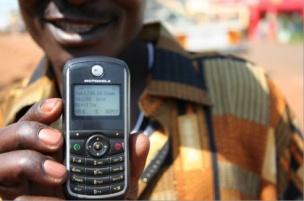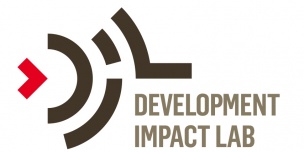Mobile Money: Technology to Transform Transactions

What if anyone with a phone could send and receive money across the market stand, or across the world – conveniently, reliably, and securely? What if everyone in the same village or neighborhood could act as a mobile money agent? And what if every mobile phone came with a savings account and insurance?
Mobile payment systems hold great promise to improve the financial lives of the poor. But problems of cost, complexity, management, and even human behavior stand in the way of progress.
On September 20 and 21, CEGA hosted “Mobile Money: Technology to Transform Transactions”, in partnership with the Bill & Melinda Gates Foundation. The conference explored avenues for collective action to reduce barriers to financial inclusion and provide better money management tools to the four billion people around the world currently lacking basic financial services.
Participants expressed a keen interest in taking these discussions forward and collaborating in more concrete ways to realize the promise of digital payment solutions.
https://www.flickr.com/photos/59053315@N06/sets/72157635807212866/
Agenda
The ability to conduct financial transactions in a timely, secure and efficient manner is an intrinsic part of our lives. But it is lacking for those who need it to break out of the cycle of poverty. The statistics for financial inclusion are not encouraging. More than 75% of adults live on less than $2 per day, and more than 75% of women worldwide lack a formal bank account. Dependence on physical cash makes it harder for the poor to manage finances. It is a risky and costly medium and harder to save due to behavioral reasons.
Dependence on cash further increases the marginalization of the poor from the formal economy. They are underserved by formal financial services because the economics of supporting small denominations of cash transactions is not viable for providers using the traditional paradigm of brick and mortar banking business. Issues of last mile access, identity, risk, behavior, literacy etc., also contribute to costs and increase barriers to service.
Digital payment solutions can substantially reduce barriers to financial inclusion, and also provide a better medium for financial management (than cash). They include mobile-enabled solutions (Mobile Money), as well as card and POS device infrastructure (agent banking networks). Mobile Money in particular, motivates us to aspire for a world where anybody and everybody with a mobile phone can access and operate a full suite of financial services.
Moving the needle on this entails diverse technological, economic and behavioral challenges. And the coordinated collective efforts of diverse stakeholders – MNOs, banks, service providers, technologists and social scientists – to develop innovations and insights to address these challenges.
Program
The conference explored avenues for collaboration to realize the promise of Mobile Money in emerging markets. We received an overwhelming response in terms of participation from leading actors in this space and frank and insightful discussion of issues. More importantly, participants expressed a keen interest to take these discussions forward and collaborate in more concrete ways to realize the aspirations of Mobile Money.
The convening was structured as a series of workshops, each addressing a specific issue along the arc of service delivery.
OPENING REMARKS
Jake Kendall, Bill & Melinda Gates Foundation
KEYNOTE ADDRESS
Ignacio Mas, Independent Consultant
WORKSHOP 1: ENGAGING CLIENTS AND CUSTOMIZING PRODUCTS
- Bill Maurer, Professor of Anthropology and Law, UC Irvine (moderator)
- Abhishek Sinha, CEO & Co-founder, Eko
- Aishwarya Ratan, Director – Global Financial Inclusion Initiative, IPA
- Dave Algoso, Director of Programs, Reboot
- Georges Andy René, Chairman, HaitiPay
- Jatinder Handoo, Senior Manager, FINO PayTech
- Karim Khoja, CEO, Roshan
- Sitoyo Lopokoiyit, Head of Division: M-PESA Strategy, Safaricom
WORKSHOP 2: INTEGRATING SUPPORT FOR FINANCIAL DECISION MAKING
- Billy Jack, Professor of Economics, Georgetown University (moderator)
- Aishwarya Ratan, Director – Global Financial Inclusion Initiative, IPA
- Cris Valerio, Fellow, IDEO.org
- Dave Algoso, Director of Programs, Reboot
- Jatinder Handoo, Senior Manager, FINO PayTech
- Karim Khoja, CEO, Roshan
- Salma Desenta, Head of Transaction Services, RUMA
- Shivani Siroya, CEO and Founder, InVenture
- Sitoyo Lopokoiyit, Head of Division: M-PESA Strategy, Safaricom
- Zahir Khoja, CEO, Mobile Payment Solutions
WORKSHOP 3: USING DATA TO OPTIMIZE OPERATIONS AND MARKETING
- Frédéric Pivetta, Managing Partner, Real Impact Analytics (moderator)
- Abhishek Sinha, CEO & Co-founder, Eko
- Gautier Krings, Head of Lab, Real Impact Analytics
- John Staley, Chief Officer – Finance, Innovation and Technology, Equity Bank
- Josh Blumentsock, Assistant Professor – Information School, University of Washington
- Shivani Siroya, CEO and Founder, InVenture
- Sitoyo Lopokoiyit, Head of Division: M-PESA Strategy, Safaricom
- Vanessa Frias-Martinez, Research Scientist, Telefónica
- Yves-Alexandre de Montjoye, PhD candidate, MIT Media Lab
- Zerubabel Junior Kwebiiha, CEO, Ezee Money
WORKSHOP 4: ON-BOARDING CLIENTS AND IMPROVING TRANSACTIONS
- Lakshmi Subramanian, Professor of Computer Science, NYU (moderator)
- Abhishek Sinha, CEO & Co-founder, Eko
- Ashim Banerjee, CEO, IDMission
- Greg Chen, Senior Financial Sector Specialist, CGAP
- Isabelle Berner, Head of Marketing, Tagattitude
- Safwan Shah, President and Founder, PayActiv
- Salma Desenta, Head of Transaction Services, RUMA
- Saurabh Panjwani, Member of Technical Staff, Bell Labs India
- Shailee Adinolfi, Director – Mobile Solutions Technical Assistance and Research Project, FHI 360
- Zahir Khoja, CEO, Mobile Payment Solutions






